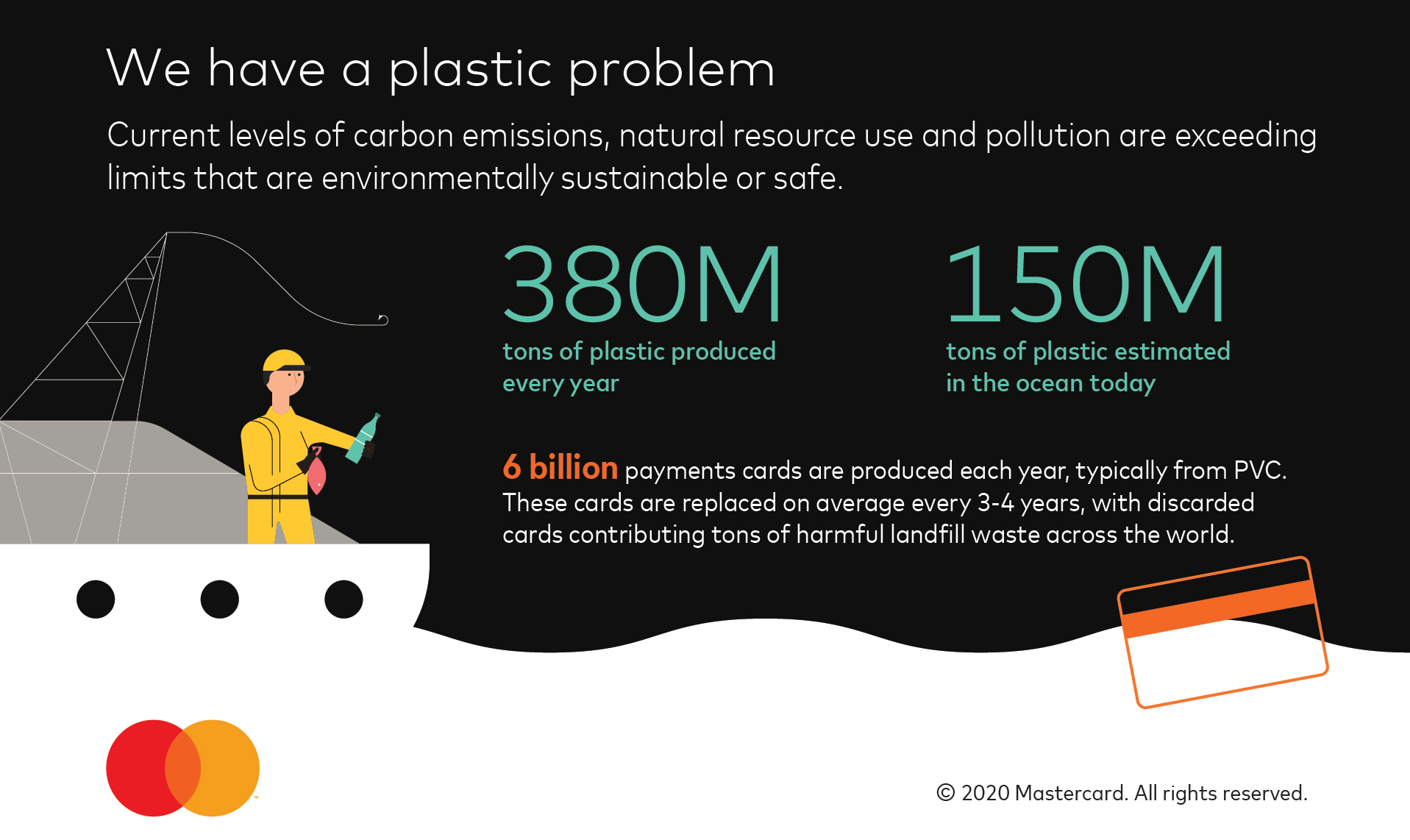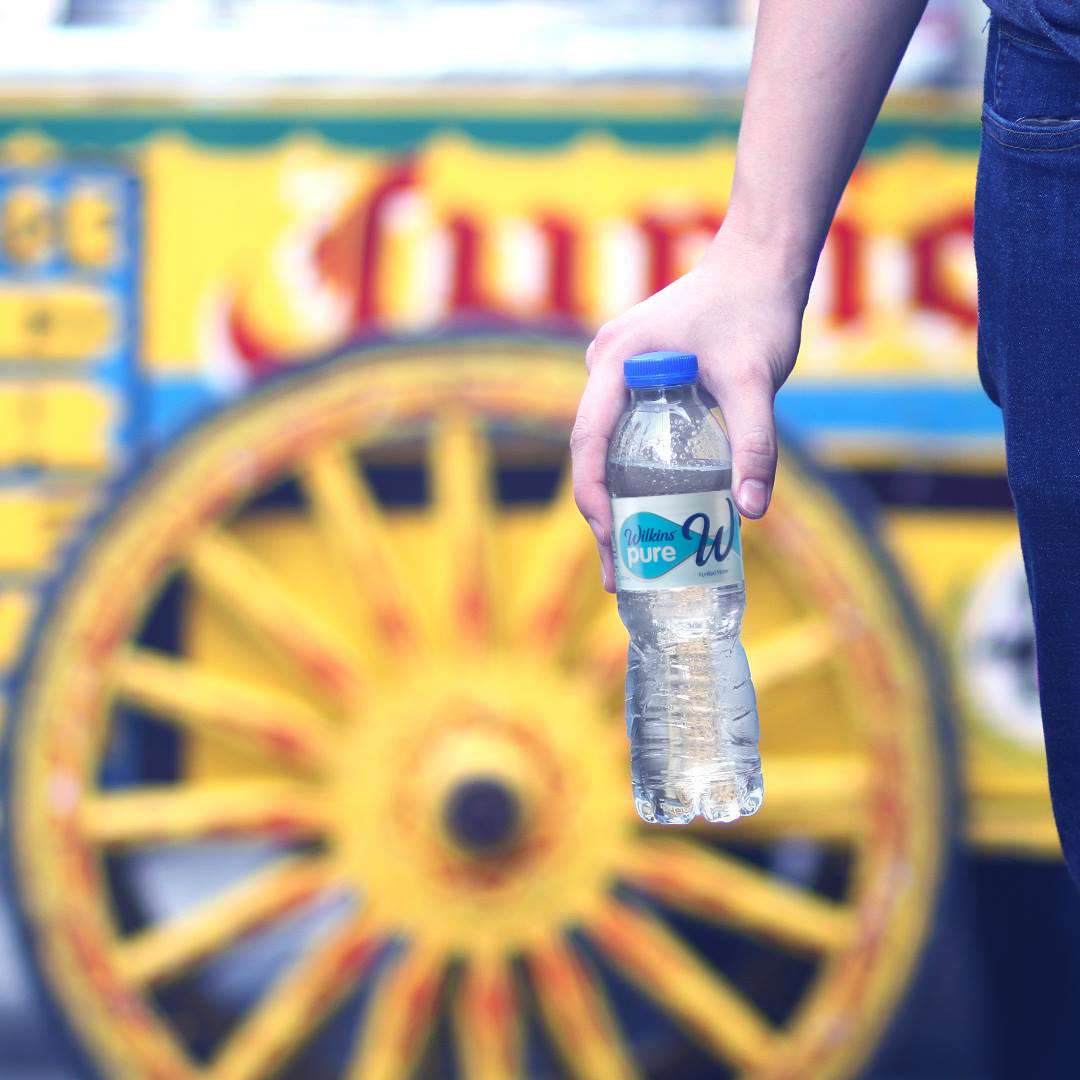- Directory of Sustainable Card Materials and Vendors Now Available
- 60+ Financial Institutions have Issued Cards Made from Recyclable, Bio-Sourced, Chlorine-Free, Degradable and Ocean Plastics
More than three quarters of people say they are “very concerned” about the environment and feel companies should be doing more to address their impact on the planet . As consumers look for ways to help tackle climate change through their own positive actions, many are limiting their use of single-use plastics. To address this growing concern, Mastercard has worked with global industry players to develop a sustainable card program for all card issuers globally. A new directory of sustainable materials and vendors for card products aims to make sustainable choice the preferred option for all financial institutions worldwide and drive enhanced innovation.

Today, Mastercard’s sustainable card offerings are available to consumers in over a dozen countries globally and more than 60 financial institutions have issued cards with approved materials made from recyclable, bio-sourced, chlorine-free, degradable and ocean plastics. These institutions include DBS Bank (Taiwan) and Crédit Agricole, as well as Santander, which will issue cards shortly. With this resource, banks can learn more about these alternatives, connect to card manufacturers and ultimately augment their own sustainability initiatives with a systemic change to their supply chain.
This initiative is a new milestone in a multi-year effort that will lead to the launch of Mastercard’s global certification scheme for approved sustainable cards. It builds on the Greener Payments Partnership (GPP) formed by Mastercard and card manufacturers Gemalto, Giesecke+Devrient and IDEMIA in 2018 to establish environmental best practices and reduce first-use PVC plastic in card manufacturing. Six billion payments cards are produced each year, typically from PVC. These cards are replaced on average every three to four years, with discarded cards going to landfills across the world.
“Our goal is simple: we want to help banks offer more eco-friendly cards to consumers, and we are taking concrete steps to bring about that change. This way, everyone benefits – it’s better for the environment, it’s better for business and it meets evolving consumer needs,” says Ajay Bhalla, president of Cyber & Intelligence, Mastercard. “We’re excited to see our efforts gaining traction in so many parts of the world and hope more organizations will join us, as we collectively use our power for good to address these urgent environmental challenges.”
“We’re pleased to partner with Mastercard on this important environmental initiative with the new DBS Eco Card, the first credit card in Asia made from polylactic acid — a renewable and biodegradable polymer material that emits no toxic gases during incineration,” said LIM Him Chuan, General Manager of DBS Bank (Taiwan). “With DBS and Mastercard focused on sustainability, this card underscores our commitment to protecting the environment as the way forward for everyone.”
Mastercard continues to invest in new technology and resources to bring new learnings and insight to the global market in support of sustainable choice across all payment rails. Mastercard’s Global DigiSec Lab in the UK, which works to maximize product innovation and security investments, has invested in technology that analyses the material makeup of a card to assess environmental claims on behalf of the industry, so that customers can be confident that any Mastercard they are issuing from a sustainable material has been evaluated and independently verified. In addition, the Lab is investing in leading academic research related to environmentally friendly ways to recycle existing plastic cards.
“We know our customers are looking for more sustainable products and looking for ways to effect positive change in the world. This approach has enabled us to not only deliver on a consumer need but also offer a product that’s in line with our corporate sustainability values,” says Marco Briata, Head of Digital & Payments – Crédit Agricole Italia.
“MCB is fully committed towards protecting the environment and our local heritage. We are converting our cards portfolio to Polylactic Acid (PLA), which reduces traditional PVC use by more than 80%. In addition, every time that a customer uses our Mastercard debit card, we make a contribution to the Mauritian Wildlife Foundation to save threatened Mauritian species through the restoration of entire ecosystems,” says Stephanie Ng Tseung, Head of Cards at MCB.
Inspiring Environmentally Conscious Choices
Mastercard makes Environmental, Social, and Governance (ESG) central to its business model; applying the full scale and scope of technology, partnerships and people to pioneer inclusive and sustainable growth for all. The company has an extensive track record in creating products, services, partnerships and experiences that enable consumers to make sustainable consumption choices that are better for the planet – easily, intuitively, to their benefit.
The Priceless Planet Coalition (PPC) is a platform to unite corporate sustainability efforts and make meaningful investments to preserve the environment. Together with partners who share a commitment to doing well by doing good, PPC is pledging to plant 100 million trees over five years, inspiring positive consumer action. Additionally, a partnership with the Swedish fintech startup Doconomy enables consumers to track, understand and take accountability of their environmental footprint through digital tools that set a new standard for purpose-driven payment solutions. The company has also recently joined RE100, furthering its commitment to renewable energy, and set a new ambitious Greenhouse Gas Emissions target to meet a 1.5°C, approved by The Science Based Target Initiative (SBTi). To learn more about Mastercard’s commitment to environmental sustainability, please visit https://www.mastercard.us/en-us/vision/corp-responsibility/sustainability.html.
Mastercard is committed to building a more inclusive digital economy that works for everyone. That includes connecting 1 billion people and 50 million SMEs to the digital economy by 2025 and supporting 25 million women entrepreneurs grow their businesses.



